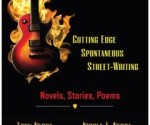Martin Scorsese Discusses his new HBO Documentary George Harrison: Living In The Material World
 Legendary director Martin Scorsese is well-known for his rock documentaries as much as he is for his fiction films. Having covered the Rolling Stones (Shine a Light), Bob Dylan (No Direction Home), and The Band (The Last Waltz), he now takes us into the life of recently deceased Beatle George Harrison. In the documentary film George Harrison: Living In the Material World, which airs on HBO October 5 & 6, the film takes us through the life and times of the legendary Beatle from Liverpool to India and features unreleased footage of Harrison from his own archives as well as interviews from his wife Olivia and his son Dhani Harrison. We had the opportunity to talk to Martin Scorsese during the New York Film Festival about working on the project.
Legendary director Martin Scorsese is well-known for his rock documentaries as much as he is for his fiction films. Having covered the Rolling Stones (Shine a Light), Bob Dylan (No Direction Home), and The Band (The Last Waltz), he now takes us into the life of recently deceased Beatle George Harrison. In the documentary film George Harrison: Living In the Material World, which airs on HBO October 5 & 6, the film takes us through the life and times of the legendary Beatle from Liverpool to India and features unreleased footage of Harrison from his own archives as well as interviews from his wife Olivia and his son Dhani Harrison. We had the opportunity to talk to Martin Scorsese during the New York Film Festival about working on the project.
How did this film come about? You have done music documentaries before.
It took me about five years to get this film made. Olivia Harrison approached me about doing a documentary about George. First we had to figure out the ground rules of how it was going to get made and how to approach the story. Olivia brought some items from the archives of George that were quite moving and beautiful and she had organized an amazing amount of material. I always had an interest in him about how he perceived life and what he was searching for. He knew early on that being in the Beatles was not going to be enough for him so we wanted to capture his search for something else.
How did you find structure in the film?
We had many long talks. First I had to deal with the period of the Beatles as a group and try to get past that information and establish that. Then there was the matter of finding why after getting all this success at such an early age he still felt like he was not being fulfilled. He was trying to find meaning and some spiritual transcendence in his life. This comes thru in many different ways but it has to come through the music in the documentary. Ultimately, as we all are, he was going towards his death. I knew at the the beginning of making this film that this was the story I was going to tell, this journey. I knew the film was not going to be chronological, it was done in a quiet tone, like the way it would be in a quiet situation. We tried to approach all these parts of his life in an oblique way going towards the goal of being released.
Obviously the music played a key role in your documentary. Was that challenging?
As Ravi Shankar says in the film, words can only do so much. Shankar was talking about compassion and love. All great musicians and composers have that advantage. So really, it’s all through the music that George was able to express himself. This way, musicians find a meaning in life through their work and music. The mixing took quite a while to do resulting in work that spanned several years in editing.
How did you pinpoint what to use with so much footage available over the span of several decades?
I had so many DVDs of footage from his archives to look thoughu that had been collected and sent to me. The first one I looked at really struck me. Here I was looking at a DVD alone in this hotel living room in front of a big TV screen. I hear these footsteps of his in the background and then he comes into the frame and just stares. There is just the two of us in the room. I thought this is a starting place.
Did you find it easy to relate to this time period when the Beatles went on this spiritual path?
Yes, I was able to relate to this due to my own issues with understanding Catholicism. I remember thinking this is very radical thinking. I remember the music being so inspiring. Hearing something like a sitar for the first time. It made me very curious and excited during that century. The Beatles are one of the most powerful groups in our history. Embracing this new way of thinking of the soul, the spiritual life, and to take what you can from it. The opening of the mind. This was a major shift in our culture. I remember seeing a Time Magazine cover and it read. Is God Dead? We have a clip of that in the film. So many things were happening at the time. The great fear was that there would be a breakdown in society. This is where the conflict came in. It was an extraordinary and frightening time.
Your film shows the various stages George Harrison was going through in his life. Did you relate to these changes?
I think after reading the letter that George wrote to his Mother when he was young helped me understand better how he started out. I hope to keep making films like this in the future about musicians. The question for me is always the great risk one takes when you examine someone like George Harrison who gets everything so early in his life by 21 or 22. A lot of people to a certain extent spend their entire lives trying to achieve and acquire things and then when you do well you think what’s next? So that’s always been in my head, like way back to my first film Mean Streets. How to lead one’s life?
What was unique about making this particular film?
This was a serious film for me. I had no deadlines so I could take my time. Ok, there were pressures, but no pressures of distribution. It was really important to just keep living with the film while making it. New footage kept coming in so everything was new and fresh. It was scary but in a good way because new footage would come in and I would think, when we are going to finish this? It could have kept going on and on. This was a real joy to work on and a very moving experience. It was a real lifesaver.
George Harrison: Living In The Material World, directed by Martin Scorsese, premiers on HBO in two parts on October 5 and 6. For more information visit HBO.com.










